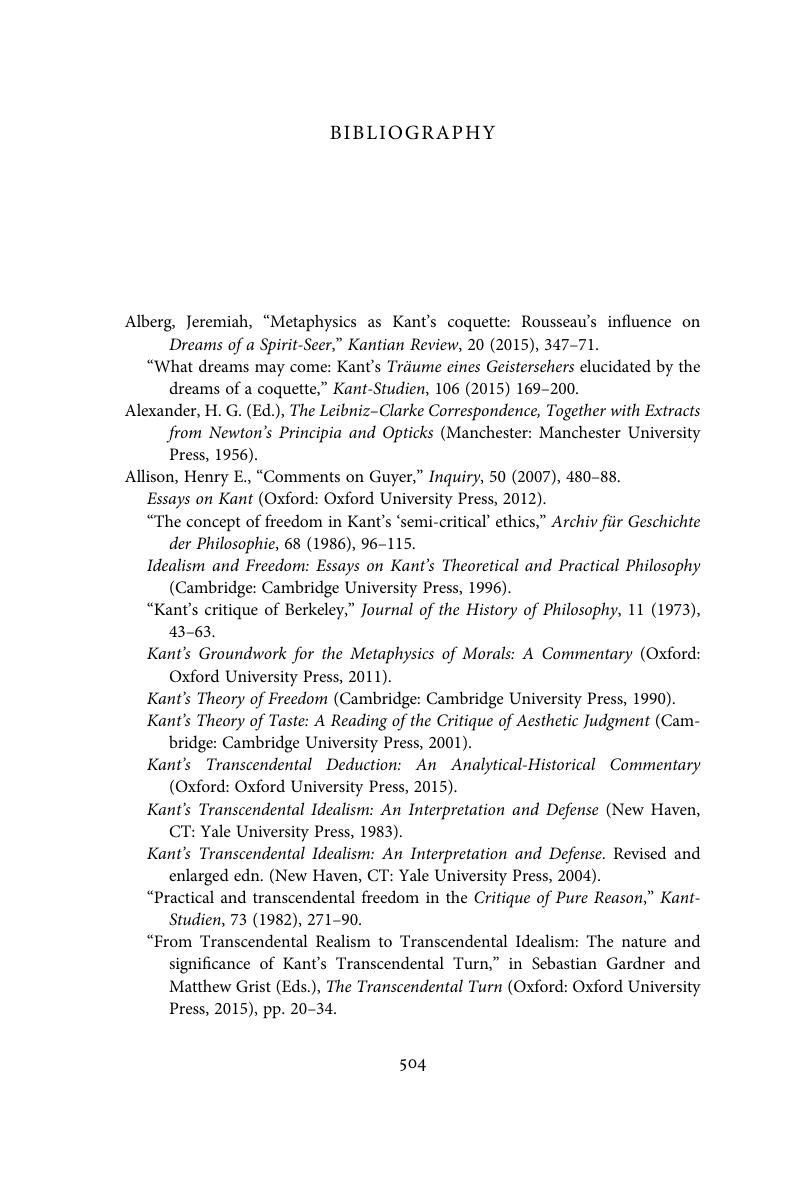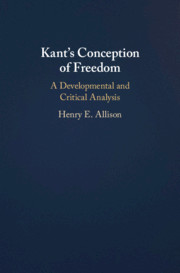Book contents
- Kant’s Conception of Freedom
- Kant’s Conception of Freedom
- Copyright page
- Dedication
- Contents
- Preface
- Acknowledgments
- Note on Sources and Key to Abbreviations and Translations
- 1 Kant’s Writings of the 1750s and the Place in Them of the Free Will Issue
- 2 Kant’s Theoretical Philosophy in the Early 1760s and Its Relation to His Conception of Freedom
- 3 Kant’s Moral Philosophy in the Early 1760s
- 4 Kant’s Dialogue with Rousseau Supplemented by His Dreams of a Spirit-Seer
- 5 From the “Great Light” to the “Silent Decade”: Kant’s Thoughts on Free Will 1769–1780
- 6 Kant’s Account of Free Will in the Critique of Pure Reason
- 7 From the Critique of Pure Reason to the Groundwork
- 8 The Fact of Reason and Freedom in the Critique of Practical Reason
- 9 The Critique of the Power of Judgment and the Transition from Nature to Freedom
- 10 Kant’s Final Thoughts on Free Will
- Bibliography
- Index
- References
Bibliography
Published online by Cambridge University Press: 19 December 2019
- Kant’s Conception of Freedom
- Kant’s Conception of Freedom
- Copyright page
- Dedication
- Contents
- Preface
- Acknowledgments
- Note on Sources and Key to Abbreviations and Translations
- 1 Kant’s Writings of the 1750s and the Place in Them of the Free Will Issue
- 2 Kant’s Theoretical Philosophy in the Early 1760s and Its Relation to His Conception of Freedom
- 3 Kant’s Moral Philosophy in the Early 1760s
- 4 Kant’s Dialogue with Rousseau Supplemented by His Dreams of a Spirit-Seer
- 5 From the “Great Light” to the “Silent Decade”: Kant’s Thoughts on Free Will 1769–1780
- 6 Kant’s Account of Free Will in the Critique of Pure Reason
- 7 From the Critique of Pure Reason to the Groundwork
- 8 The Fact of Reason and Freedom in the Critique of Practical Reason
- 9 The Critique of the Power of Judgment and the Transition from Nature to Freedom
- 10 Kant’s Final Thoughts on Free Will
- Bibliography
- Index
- References
Summary

- Type
- Chapter
- Information
- Kant's Conception of FreedomA Developmental and Critical Analysis, pp. 504 - 514Publisher: Cambridge University PressPrint publication year: 2020



